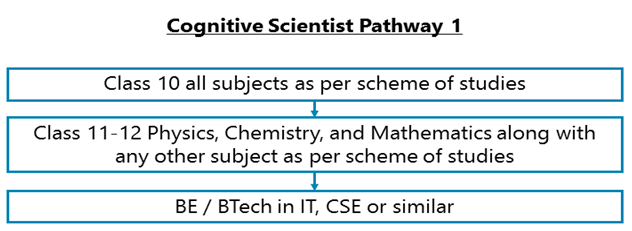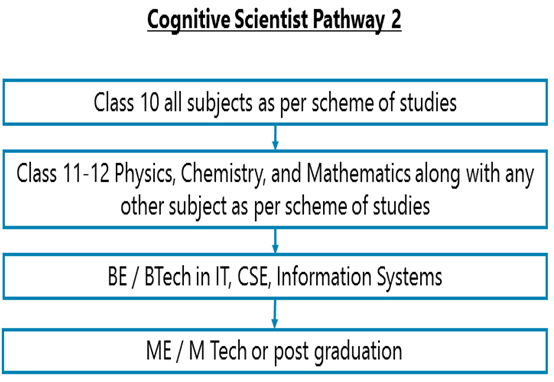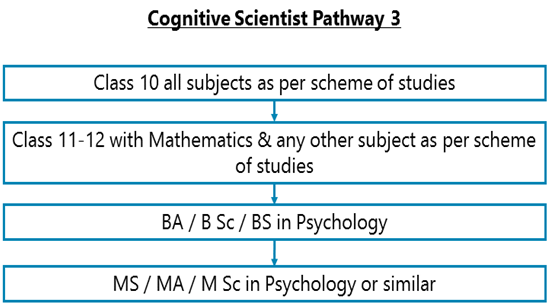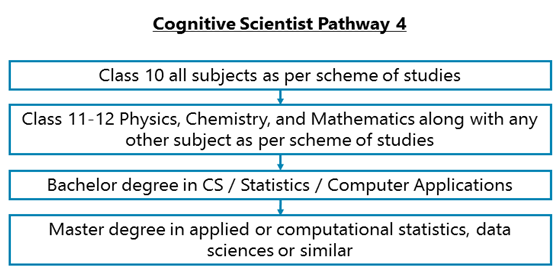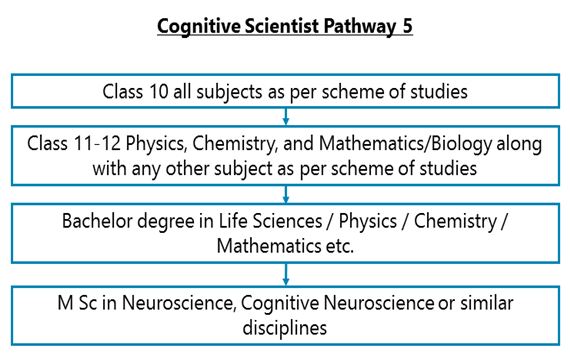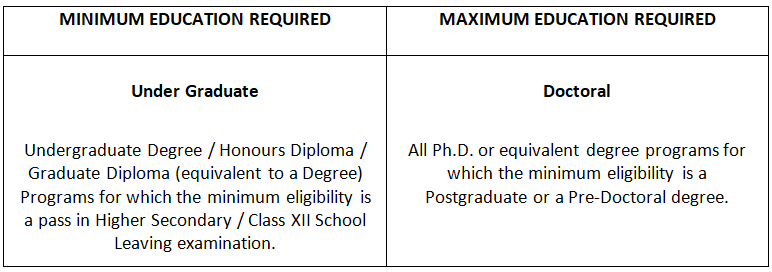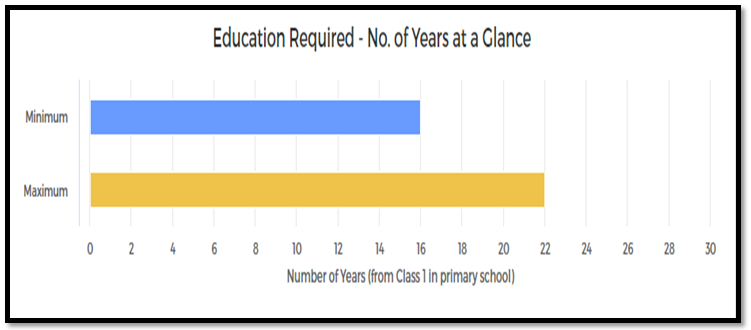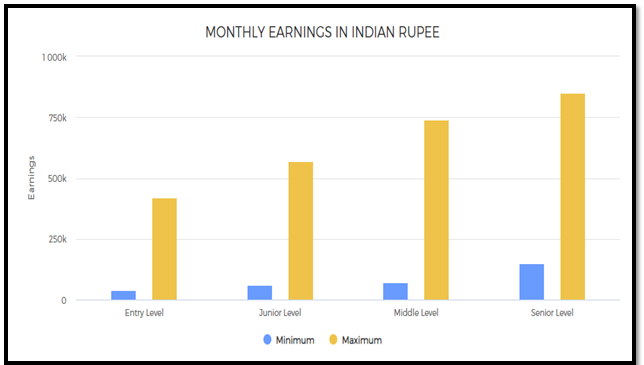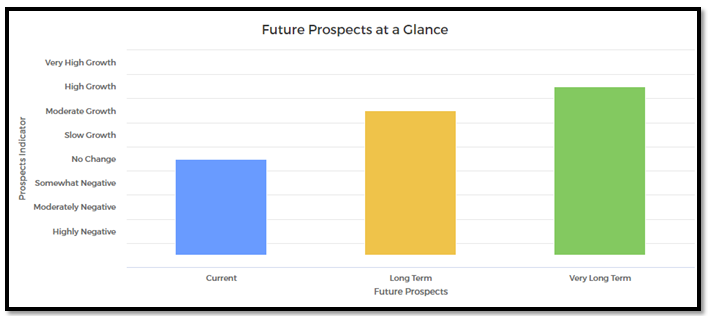Cognitive Scientist
Entry Level Qualification
Post Graduate
Career Fields
Mathematics & Science
For Specially Abled



Career Entrance Exam
About Career
PARTICULARS | DESCRIPTION |
Name | Cognitive Scientists |
Purpose | Characterizing The Structure of Human Intellectual Functioning |
Career Field | Mathematics & Science |
Required Entrance Exam | No Entrance Exam |
Average Salary | 500000 - 1500000 Rs. Per Year |
Companies For You | Cognitive Scientist, Visual Perception Scientist, Robotics - Process Engineer & Many More |
Who is Eligible | Post Graduate |
Cognitive Scientists are devoted to the scientific study of the human mind. It is a highly cross-functional and interdisciplinary field which combines ideas/ methods from computer science, psychology, anthropology, philosophy, linguistics, and neuroscience.
The broad goal of Cognitive Scientists to characterize the nature, forms and content of human knowledge and how the human mind uses, processes, and acquires such knowledge to execute its sensorimotor activities. Sensorimotor refers to the actions that our human body executes using our sensory organs and our limbs.
Cognition of the human mind is essentially reflected through such actions. Lately, such learning processes of the human mind and its effective reflection through activities is a major objective of the computer industry to integrate into machines using state-of-art technologies such as data mining, AI, deep learning, neural computing & imagery etc. This brings into account collaborative efforts of psychologists, neuroscientists, computer/ information research scientists, linguists and engineers collectively referred to as Cognition/ Cognitive Scientists.
Let us try to grind all this down slowly. Be patient
Firstly understand what a cognitive system is
Non-human systems like robots/ computers which can be integrated with human-like cognitive abilities can be referred to as cognitive systems. They are capable of solving problems as well as or better than humans without human assistance.
Scientists are far from building a cognitive system will all human capabilities rolled into it. We are yet to create “Personoids” which are human minds that live inside computers and do not need a human-like physical body as ideated by the sci-fi writer Stanislaw Lem.
These cognitive systems will rely on neural networks and deep learning algorithms to process information by comparing it to a “teaching set of data”. The more data such systems are exposed to, the more they learn, and the more accurate they become over time, and the neural network ultimately becomes a complex “tree” of decisions the computer can make to arrive at an answer.
Let us illustrate to make this complex tree simpler
The gradual process of training by the teaching set of data is referred to as “learning from experience” or Cognitive Development which we humans are capable of. Learning and development are the processes by which we acquire knowledge and information over time.
Infants are born with little or no knowledge of the world, yet they rapidly acquire the ability to use language, walk, and recognize people and objects.
For example, we know if we see a cat on the road, we will immediately recognize it as a cat because we have experienced such “an object” earlier. But as of now, there exists no such cognitive system which is capable of identifying objects simply because it has “seen” it earlier.
Or say, when we hear a dog barking, we are immediately conscious about it although we may not always look or stare at the dog. We might just hear it, let it pass and walk by. But our brain (and we) will always know it was a dog.
It is immensely difficult to replicate such cognitive processes, whether with auditory or visual input, through logic gates, sensors, capacitors, microchips, resistors inside a machine and Cognitive Scientists are at it for years now.
Getting the idea?
The ultimate goal of generation Z of Cognitive Scientists: Cognitive Computing
With the newfound emphasis on information processing, Cognitive Computing shall a more precise term to refer to these collective activities (all in the earlier discussions) carried out trying to simulate human thought processes in a computerized model using self-learning algorithms, data mining, speech recognition, vision/ dialog recognition, pattern recognition, etc.
With the rising speed of the Internet, the volume of unstructured data is also increased enormously across industries and so is the difficulty in handling such data.
Now, cognitive computing helps to process huge volumes of complex unstructured data such as documents, videos, photos, audio files, symbols, presentations, web pages, etc. which do not fit neatly into any database. Conventional database management systems are not designed to organize/ interpret such data.
Cognitive Science is concerned with a wide array of topics
Currently the active areas of research in cognitive science include language, thinking & reasoning, attention, visual perception & cognition, memory, decision making, visual literacy of computing systems, social cognition, and cognitive development(learning through experience over time as explained earlier) effectively through auditory/ visual input i.e. trying to enable a computer make sense of images/ videos/ audio and come out with a response if anything is asked to them, maybe via speech production too.
The personal digital assistants we have on our phones and computers now (Siri and Google Assistant among others) are not true cognitive systems; they have a pre-programmed set of responses and can only respond to a preset number of requests.
There is one parallel benefit too! As all of this also helps in understanding how damage to particular areas of the brain affect cognition, and it has helped to uncover the root causes/ results of specific dysfunction, such as anopia, dyslexia, and hemi spatial neglect among others. This is of immense value to the healthcare community worldwide.
Now, let us describe this array a bit – defining the scope of Cognitive Sciences
1. Attention, which is selectively sensing specific information or source of information. Your human mind and ours too are continuously bombarded with billions of stimuli and so it must have a way of selecting which of this information to process.
In a very interesting experiment, a group of people (subjects) were exposed to a different message in each ear which makes it 2 different auditory inputs through 2 different channels into the central processing unit viz. the brain.
In the end, they could not report the content of the unattended parts of any message which means their minds had subconsciously attended to or selected a specific message entirely or deleted parts of a message depending on individual capabilities.
2. Knowledge and processing of human language which is the ability to learn/ understand/ remember/ use any human language and is very complex to replicate in machines/ cognitive systems. Such an attempt shall involve many aspects like patterns of speech, meaning of words, whole sentence structures, investigation of sound through speech, phonetics, components, syntax, etc.
3. Memory which can be long (days, weeks, years) or short (seconds or minutes) term. Examples, in this case, could be what mental processes a person goes through while seeing hints of something before remembering it or trying to retrieve a long-lost memory, etc.
4. Perception and response, which is the ability to take in information via the senses before processing it in some way. Hearing and vision are the 2 dominant senses in this case and as already discussed through auditory/ visual input.
5. Learning & development or Cognitive Development or Learning from Experience collectively refers to the processes by which we acquire knowledge and information over time. Certain abilities are innate and some others is learned from the environment. In our case, both genetic & environmental input is required to develop knowledge thoroughly about particular elements in this world but such kind of input recognition is difficult to simulate in a cognitive system.
6. Consciousness is the most abstract and complex to be pre-programmed into a cognitive system. Defining it with algorithms is just something that is way too futuristic, or so it seems at least now. It helps our minds to have the ability to feel a sense of self and identify whether something is within oneself or an external object.
Finally, what would you be doing as a Cognitive Scientist
So, now that we have understood a considerable bit about the whole corpus within the realm of Cognitive Sciences, we shall try to understand some of the types of activities that Cognitive Scientists do to attain a better understanding of their requirements before building a cognitive system.
1. Behavioral experiments: By measuring the responses of humans to different stimuli, Scientists can understand something about how those stimuli are processed. For e.g. measuring peoples’ beliefs about similar things, or deliberately shaking hands to observe peoples’ reactions, ability to quickly repeat a certain number of words, judgments for colors/ tones/ textures, etc.
These are mostly naturalistic experiments meaning observing the subject in the natural environment without any manipulation by the observer. Eye-tracking is another interesting methodology. The fixation point of the eyes is linked to an individual's focus of attention.
Thus, by monitoring eye movements, we can study what information is being processed at a given time.
2. Brain imaging using radioactive isotopes of certain elements to mark the areas which absorb the isotopes and finding out the active locations in the brain. Another method may be applying electric shocks on the scalp or magnetic pulses to the brain or measuring the amounts of light reflected by blood in different areas of the brain or by measuring the magnetic fields in the brain.
3. Computational modeling to form a mathematical and logical representation, diagrams, schematics, etc., writing algorithms using various software, of specific and general properties of human intelligence to be simulated inside a cognitive system.
4. Using animal models, post mortem analyses, measuring responses of a single neuron using electrode systems (single unit recording), constantly deliver direct low current via electrodes on the head (transcranial direct current stimulation-this is sometimes considered specifically useful for cognitive enhancement in healthy people too)are some other research methods.
Key Roles and Responsibilities
As a Cognitive Scientist you will be responsible for 1 or more of the following roles or associated tasks as well:
1. You will use quantitative/ computational/ statistical/ analytical research methods to analyze behavioral data (psychophysical, motor control experiments, pathological, clinical, etc.) or to research/ develop statistical parametric speech synthesis, or structured acoustic models and design predictive digital interfaces/ programming algorithms.
2. You will design/ conduct user research studies on new and existing product concepts/ features and deliver actionable research findings with clear recommendations for both product and design.
3. You may be responsible for analyzing human performance related to a wide variety of scenarios involving consumer products, automobiles/bicycles/scooters, pedestrian behavior, occupational work, and machinery, etc. You will analyze human perceptual, cognitive, and response capabilities in these scenarios.
4. You will plan & execute cutting-edge behavioral and theoretical research to advance augmented reality/ visual reality interaction technologies by drawing on scientific understanding of human sensorimotor skills.
5. You will assist in usability & human factors studies for creating innovative product solutions, concepts, services, experiences, and human interfaces. This includes working on existing products, mock-ups, and prototypes.
6. You may often use a vocoder that analyzes and synthesizes the human voice signal for audio data compression, multiplexing, voice encryption or voice transformation.
7. You will independently conduct research to obtain and review technical data, scientific literature, and standards and may also be responsible for communicating complex analyses clearly & succinctly to a non-technical audience.
8. You will be traveling to relevant national and international conferences/ symposiums around the globe.
Career Entry Pathway
Class 10 all subjects as per scheme of studies – Class 11-12 Physics, Chemistry, and Mathematics along with any other subject as per scheme of studies – BE / BTech in IT, CSE or similar
After completing Class 11-12 Physics, Chemistry, and Mathematics along with any other subject as per scheme of studies, you can pursue BE / BTech in IT, CSE, Information Systems, Industrial Engineering, Industrial & Systems Engineering or similar. Then you can join machine learning labs to assist in early stage projects as intern/ trainee.
Class 10 all subjects as per scheme of studies – Class 11-12 Physics, Chemistry, and Mathematics along with any other subject as per scheme of studies – BE / BTech in IT, CSE, Information Systems – ME / M Tech or post-graduation
After completing Class 11-12 Physics, Chemistry, and Mathematics along with any other subject as per scheme of studies, you can pursue BE / BTech in IT, CSE, Information Systems, Industrial Engineering, Industrial & Systems Engineering or similar. Then go for ME / M Tech in respective disciplines or post-graduation in Cognitive Science, machine Intelligence or similar disciplines.
Class 10 all subjects as per scheme of studies – Class 11-12 with Mathematics & any other subject as per scheme of studies – BA / B Sc / BS in Psychology – MS / MA / M Sc in Psychology or similar
After completing Class 11-12 with Mathematics & any other subject as per scheme of studies, you can go for BA / B Sc / BS in Psychology. Then pursue MS / MA / M Sc in Psychology (preferably with concentration in behavioral & cognitive neuroscience), cognitive science, applied psychology, psychobiology, biological psychology, physiological psychology, or similar disciplines.
Class 10 all subjects as per scheme of studies – Class 11-12 Physics, Chemistry, and Mathematics along with any other subject as per scheme of studies – Bachelor degree in CS / Statistics / Computer Applications – Master degree in applied or computational statistics, data sciences or similar
After completing Class 11-12 Physics, Chemistry, and Mathematics along with any other subject as per scheme of studies, go for Bachelor degree in CS / Statistics / Computer Applications then Master degree in applied or computational statistics, data sciences or similar
Class 10 all subjects as per scheme of studies – Class 11-12 Physics, Chemistry, and Mathematics/Biology along with any other subject as per scheme of studies – Bachelor degree in Life Sciences / Physics / Chemistry / Mathematics etc. – M Sc in Neuroscience, Cognitive Neuroscience or similar disciplines
After completing Class 11-12 Physics, Chemistry, and Mathematics/Biology along with any other subject as per scheme of studies, you can go for a Bachelor's degree in any branch of Science such as Life Sciences / Physics / Chemistry / Mathematics / Statistics / Computer applications / Pharmacy / Veterinary Science / Psychology / Engineering / Technology / Medicine then M Sc in Neuroscience, Cognitive Neuroscience. Some institutes provide monthly fellowship stipends to M Sc students too which may be as high as Rs 12000.
Class 10 all subjects as per scheme of studies – Class 11-12 Physics, Chemistry, and Mathematics along with any other subject as per scheme of studies - Bachelor's - M Sc in Neuroscience, Cognitive Neuroscience
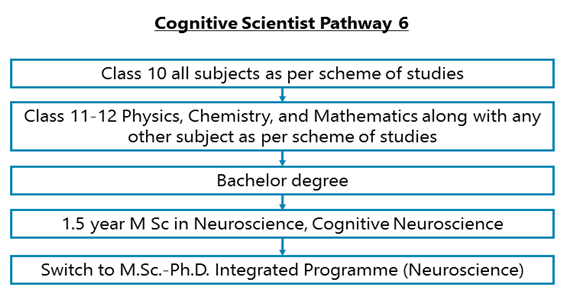
After completing Class 11-12 Physics, Chemistry, and Mathematics along with any other subject as per scheme of studies, you can go for a Bachelor's degree in any branch of Science such as Life Sciences / Physics / Chemistry / Mathematics / Statistics / Computer applications / Pharmacy / Veterinary Science / Psychology / Engineering / Technology / Medicine then M Sc in Neuroscience, Cognitive Neuroscience. Towards the end of the 2nd year of your post graduation, some institutes may offer an option of switch to M.Sc.-Ph.D. Integrated Programme of Neuroscience too.
Required Qualification & Competencies
To get into this field, you will need to pass Class 11-12 with Physics, Chemistry, Mathematics, Computer and Biology (Physics, Chemistry mandatory and at least any 2 from the others) along with any other subject as per scheme of studies or you can also pursue any other combination at this level (preferably with Mathematics).
Then you can do a degree in Engineering in any one of the following fields or any other Science / technological fields/ Psychology/ Linguistics. Master’s degree is a must in this field as most Scientist level industrial roles require post-graduation at the least.
You can study for a Bachelor’s or Master’s or Doctoral degree in any of the following fields (Note that all these fields may not offer you a degree at all 3 levels that is in Bachelor’s, Master’s and Doctoral. Some fields may offer a degree only at the Master’s or at the Doctoral level):
1. Cognitive Sciences
2. Computational Neuroscience
3. Cognitive Linguistics
4. Neurobiology/ Neuroscience
5. Psychology
6. Applied Psychology
7. Cognitive Neuroscience
8. Cognitive Psychology
9. Computer Science & Engineering
10. Neuroscience & Neurobiology
11. Psychology and Neuroscience
12. Brain Science
13. Applied Mathematics
14. Physical Sciences
15. Chemical Sciences
16. Mathematical Sciences
17. Statistical Sciences
Compentencies Required
Interests
1. You should have interests for Investigative Occupations. Investigative occupations involve working with ideas and quite a lot of thinking, often abstract or conceptual thinking. These involve learning about facts and figures; involve use of data analysis, assessment of situations, decision making and problem solving.
2. You should have interests for Realistic Occupations. Realistic occupations often involve physical activities for getting things done using various tools and equipment.
Knowledge
1. You should have knowledge of Computers– Knowledge of computer hardware and software, computer programming, computer networks, computer, and mobile applications.
2. You should have knowledge of Data and Information Security - Knowledge various software, systems and processes to ensure security of data and systems in computer networks as well as in individual computers and systems. This includes developing and programming software and systems to protect data and ensure security.
3. You will need experience with 1 or more machine learning libraries such as sci-kit-learn, MLlib, TensorFlow, PyTorch, Keras, Caffe or Theano, etc. and at least 1 database management system software (e.g. Apache Hadoop; MongoDB; NoSQL; Teradata Database; Cassandra; Pig; Solr; ElasticSearch)
4. You should have knowledge of any analytical or scientific software relevant to your industry such as SAS, IBM SPSS Statistics, The MathWorks MATLAB, Minitabetc.; preferably application server software such as Github; database user interface and query software such as Amazon Redshift, Apache Hive, Microsoft SQL Server, Structured query language SQL
5. You should have experience in the broad application of 1 or more higher-level programming languages such as Python, Java/Scala, R or C/C++.
Skills
1. You should have Technical Skills - using various technologies and technical methods to get things done or solve problems.
2. You should have Quality Control Analysis Skills - conducting tests and inspections of products, services, or processes to evaluate quality or performance.
3. You should have Systems Analysis Skills - determining how a system should work and how changes in conditions, operations, or the environment will affect outcomes.
4. You should have Systems Evaluation Skills - identifying measures or indicators of system performance and the actions needed to improve or correct performance, relative to the goals of the system.
5. You will need Programming Skills - writing computer programs for various applications, installation of computer programs and troubleshooting of problems in computer programs or software.
6. You should have Critical Thinking skills- Skills in the analysis of complex situations, using logic and reasoning to understand the situations and take appropriate actions or make interpretations and inferences.
7. You should have Judgment and Decision Making Skills - considering pros and cons of various decision alternatives; considering costs and benefits; taking appropriate and suitable decisions.
8. You should have Problem Solving Skills - Skills in analysis and understanding of problems, evaluating various options to solve the problems and using the best option to solve the problems.
9. You should have experience working independently under general direction within the scope of an assignment and use sound judgment in determining methods, techniques, and evaluation criteria.
10. You should have sufficient verbal and written communication skills necessary to effectively collaborate in a team environment and present technical ideas/results.
Ability
1. You should have Deductive Reasoning Ability - apply general rules and common logic to specific problems to produce answers that are logical and make sense. For example, understanding the reasons behind an event or a situation using general rules and common logic.
2. You should have Problem Sensitivity - The ability to tell when something is wrong or is likely to go wrong. It does not involve solving the problem, only recognizing there is a problem.
3. You should have Inductive Reasoning Ability - to combine pieces of information from various sources, concepts, and theories to form general rules or conclusions. For example, analyzing various events or situations to come out with a set of rules or conclusions.
4. You should have Information Ordering Ability - to arrange things or actions in a certain order or pattern according to a specific rule or set of rules (e.g., patterns of numbers, letters, words, pictures, mathematical operations).
5. You should have Oral Comprehension Ability - listen to and understand information and ideas presented through spoken words and sentences.
6. You should have Oral Expression Ability - communicate information and ideas in speaking so others will understand.
7. You should have Fluency of Ideas - The ability to come up with a number of ideas about a topic (the number of ideas is important, not their quality, correctness, or creativity).
Personality Traits
1. You are always or mostly careful about your actions and behavior.
2. You are always or mostly disciplined in your action and behavior.
3. You are always calm or generally remain calm in most situations.
4. You can always act independently or could do so in most situations.
5. You are always imaginative or in most situations.
Career - Job Opportunities & Profiles
A distinctive advantage of a degree in Cognitive Science or related areas is career flexibility. A cognitive science degree can lead to careers in research, artificial intelligence, technical writing, health care, information technology, neuroscience, law, publishing, government agencies, and non-profit organizations.
Cognitive scientists can also work as faculty members at colleges or universities where they teach classes and conduct research.
At the beginning of your career, you can get a job as a Graduate Intern/Trainee/ Research Intern etc. and then proceed to these work roles in an industry or business segment. At the Intern / Trainee level you will put inquiry and theory into practice.
Following are some of the entry level roles that you may find after at least your post-graduation (you may surpass internships and traineeships to directly get your first job).
In India, such roles after Bachelor degrees is few and far between unless it is coupled to a few professional certificates and recruiters are nowadays looking for knowledge & experience instead of degrees so you may as well obtain informal training after your Bachelor degree to elevate your knowledge base and widen foundation and smoothen your efforts while scouting for jobs. Currently, the most frequent job placements are in the computer industry in the areas of cognitive engineering (human factors), human-computer interface design, artificial intelligence, neural network applications, software design & development. There is also a growing demand in neuroscience, biotech, pharmaceuticals, and others.
1. Cognitive Scientist
2. Cognitive Systems Engineer
3. UX Researcher
4. Visual Perception Scientist
5. Neuromorphic Computing Research Associate
6. Data Scientist
7. Neuroscientist
8. Speech Synthesis Research Engineer
9. Bilingual Case Manager
10. Robotics - Process Engineer
11. Product & Usability Researcher
12. Human Factors Scientist
13. Psychometrician Intern
14. Consultant - Customer Analytics
15. AI Analytics & Strategy Engineer
16. Research Intern - Speech and Dialogue Research
17. Research Intern - Multisensory perception and haptics
18. Human Experience Research Intern
1. You may work with companies operating in the data analytics or IT domain to develop algorithms and analytic approaches towards a scientific problem in the capacity of a Cognitive Scientific Programmer or similar roles. You may have to lead or participate in computer programming efforts in a variety of application-oriented projects. Amazon Web Services, Inc., IBM, Microsoft, HP, Facebook Reality Labs, Baidu, Dell, Thomson Reuters, Apple, Accenture etc. are some of the world’s leading names in this field.

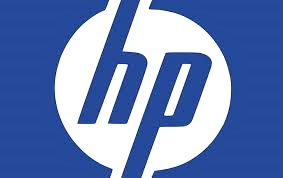

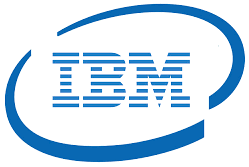

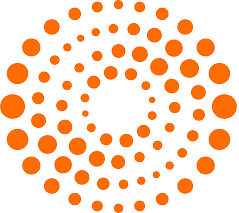
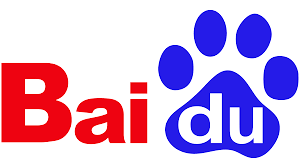
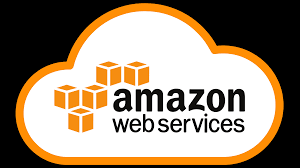

2. You may work with laboratories (government-owned or privately held) which are innovating into the development of new technologies for interaction with the augmented world through high-fidelity physical or mathematical or statistical models at multiple scales using numerical methods and associated algorithms.
3. Such opportunities include defense research organizations, operations research, gaming companies or enterprises which use quantitative research methods to analyze behavioral data (from psychophysical & motor control experiments) and design predictive models where you will collaborate with engineering teams to translate fundamental scientific knowledge into novel software and hardware technologies.
4. For an example, you may help your team as a Human Effectiveness Intern to build a missile defense training game with Unity and C# by using algorithms/ data structures to program the simulations while also learning about visual design & animations to apply to the user interface.
5. You may work with specialized firms focused on emerging technologies viz. big data, data analytics, digital, NLP and artificial intelligence etc. The scope or applicability of projects may be very different and widespread. Some of these companies are Kore.ai, Inc., SPEC INDIA, Hamilton Research & Technology Pvt.Ltd., TechVantage Systems Pvt. Ltd. etc.
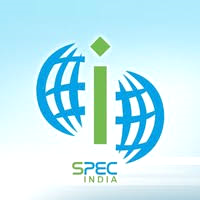


6. You may have to manage the data science algorithms while working with data strategy companies, which provide consulting services and innovative data products which enable different businesses manage vast amounts of data diligently & derive insightful information from them. In the fast-paced environment of today, large volumes of data need to be collected, maintained & analyzed to create time-sensitive models that enable decision making.
7. You may even work as a Product and Usability Researcher/Clinical Trials Designer with biopharmaceuticals/ drugs manufacturing businesses that focus on the discovery, development & commercialization of prescription medicines as part of their scientific computing / IT Solution Delivery Team to solve ever-changing & complex data and computing problems. You will be responsible for defining research plans for the company using your analytical and research capabilities.
8. Cognitive computing and AI systems in healthcare have numerous other use-cases including robot-assisted surgery, virtual nursing assistant, dosage error reduction, preliminary diagnosis, clinical trial participant identifier, administrative workflow assistance, fraud detection among others. Hence, you will find several work opportunities in enterprises operating in this domain too.
Career Growth
1. If you join as a Graduate Engineer Intern/Trainee, then after completion of your training, you will be positioned as Cognitive Scientist/ UX Designer or Researcher/ Speech Synthesis Research Engineer/ Human Factors Scientist/ Data Scientist etc. or similar positions. However, if you join after your Master’s degree, you can directly get a job as any one of these positions.
2. The next level of promotion will be to Senior level – as a Senior Scientist- Intelligent Tutoring / Senior Project Engineer / Senior UX Researcher / Analytic Advisor / Senior Scientist or similar.
3. After 7+ years of experience, you can expect to become a Senior Lead Researcher / Scientist and after 12-15 years of experience, a Principal Scientist / Or Chief Engineer / or Principal Engineer.
4. Then after 15-20 years of experience, you may grow as an Associate Director of User Experience/ Vice President Product Support engineering/ Senior Vice President / President / Director of Programs - Product Development /Director, Content Strategy/ Executive Director / Chief Executive Officer or similar roles.
Salary Offered
1. At the entry-level jobs, after your post-graduation depending upon the institution where you are graduating from, you may expect to get about Rs. 40,000 – 1, 00,000 or even more a month. In junior level jobs (after 4-5 years of experience), you can make about Rs. 60,000 – 1, 50,000 or more per month.
2. In mid-level jobs in India (after 8-10 years of post-graduation), you can expect to earn about Rs. 70,000 – 2, 50,000 or even more a month.
3. In senior-level jobs in India (after 15 years of post-graduation), you can expect to earn about Rs. 1, 50,000 – 5, 00,000 or even more a month.
4. Major opportunities today are concentrated at these locations Hyderabad, Bangalore, Mumbai, Pune, Vizag, Chennai and Delhi in declining order of abundance.
Global (US)
1. At the entry-level jobs, after your Master's degree depending upon the institution where you are graduating from, you may expect to get about USD 3,000 – 6,000 or even more a month. You may get these jobs right after a Bachelor's degree in Computer Engineering provided you have 3-4 years of relevant engineering experience but other disciplines of engineering shall not prove to be very rewarding in this field for graduates.
2. Most aspirants complete their post-graduation or higher before getting into a professional environment. You may be involved as a Graduate Teaching Assistant in a university / Research Assistant in a university or even an enterprise while you complete your studies in the US. Most professionals in this field are either postgraduates or Ph.D. holders in the US so competition will be tough if you wish to find an opportunity right after graduation.
3. After 4-5 years of relevant work experience, you may expect to earn around USD 5,500 to USD8, 000 a month or more depending on your job location and roles.
4. In mid-level jobs (after 8-10 years of post-graduation), you can expect to earn about USD 6500 – 10 500 or even more a month.
5. In senior-level jobs (after 15 years of post-graduation), you can expect to earn about USD 8,000 – 12,000 or even more a month.
6. Senior corporate leaders including roles such as those of Director of Programs - Product Development / VP Product Support Engineering get much more than this; their total remuneration including performance bonuses could be as high as USD 2 000 000 a year or more.
Monthly Earnings In Indian Rupee
1. Entry level: 0 - 2 years of work experience
2. Junior Level: From 1 to 12 years of work experience
3. Mid-Level: From 5 to 20+ years of work experience
4. Senior Level: From 10 to 25+ years of work experience (there could be exceptions in some high-end technical, financial, engineering, creative, management, sports, and other careers; also in the near future, people will reach these levels much faster in many careers and in some careers, these levels will have no meaning as those careers will be completely tech skill driven such as even now, there is almost no level in a Cyber Security Expert’s job)
Work Activities
1. Analysing and interpreting data and information - Analysis of data and information to find facts, trends, reasons behind situations, etc.; interpretation of data to aid in decision making.
2. Communicating with co-workers and others - Communicating with people in writing, verbally or otherwise inside your workplace and various other people who have professional relationships with your place of work including vendors, government officials, etc. or with people at large.
3. Computing - using various computer software applications; using software applications for scientific and technical work.
4. Creative thinking - Developing new ideas, concepts, innovative solutions to problems, newer ways of getting things done, designing products and services, creating work of art and craft, etc.
5. Getting Information and learning - Observing, hearing, reading, using computers, or otherwise obtaining information and learning from it.
6. Identifying objects, actions, and events - Identifying various characteristics of objects; observing and understanding actions and events; understanding changes in actions and events.
7. Making decisions and solving problems - Analysis of data and information; evaluation of alternative decisions and results of decisions; taking the right decisions and solving problems.
8. Organising, planning and prioritizing tasks - Planning and organising tasks in order to achieve work goals; prioritizing tasks to achieve goals and making the best use of the time available.
9. Processing information - Compiling, tabulating, calculating, auditing, verifying or otherwise dealing with information processing including data entry, transcription, recording, storing and maintaining databases.
10. Providing advices and consultation to others - Giving advices or consultation to others about various issues, conceptual matters, know-hows, scientific matters, products or services.
11. Strategic planning - Developing visions and goals, developing strategies and action plans for achieving visions and goals.
12. Translating and interpreting - Translating or interpreting information for other people which are written or spoken in languages that other people do not understand.
13. Updating and using relevant knowledge - Keeping updated with the latest knowledge relevant to your fields of work and use of the relevant knowledge in getting things done.
14. Using computers for work - Using computers for day-to-day office work; using computer software for various applications in day-to-day professional work; entering data and process information; for writing.
15. Working in a team - Working in a team of people; developing team; maintaining professional relationships among team members.
Future Prospects
1. You can expect a bright future in this field as the industry statistics are encouraging.
2. The Global Cognitive Analytics Market is expected to grow from USD 1.95 billion USD 40.25 billion by 2027 with a compounded growth rate of 39.9%.
3. The HPDA (High-Performance Data Analytics) market size is estimated to grow from USD 25.71 billion to USD 78.26 billion, at a rate of 24.9% compounded annually. The Simulation & Analysis Software Market is stated to grow at a rate of over 7% compounded annually.
4. The Cognitive Security Market worldwide is projected to grow by USD 25.7 Billion, driven by a compounded rate of 35.3% to reach over USD 14 Billion by the year 2025. In Japan, solutions will reach a market size of USD 951.7 million by the close of 2025. As the new game-changer in global markets, China exhibits the potential to grow at 34.1% over the next couple of years and add approximately USD 4.3 billion.
5. The Global Cognitive Assessment and Training Market is expected to grow from USD 2,156.49 million to USD 12,152.15 million by the end of 2025 at a compounded rate of 28.01%.
6. Global Computer-Aided Engineering Market is expected to reach USD 7.79 billion, on the back of increasing demand for innovation and superior quality products from across the globe, high expenditure on aerospace & defense sector, rising technological advancements and growing need for application-specific computer-aided engineering (CAE) software.
7. The Global IONM (Intraoperative Neuromonitoring) Market is slated to grow at a rate of 8.92% compounded annually.
8. The growing demand for digital technology and changing customer demands have also led the BFSI players to adopt cognitive systems and AI implementation in their operations. Globally, BFSI is the 2nd most customer data-centric industry with extensive implementations of cognitive systems, cloud-based software, self-learning systems, speech recognition & language processing techniques and edge computing.
Future Prospects At a Glance


